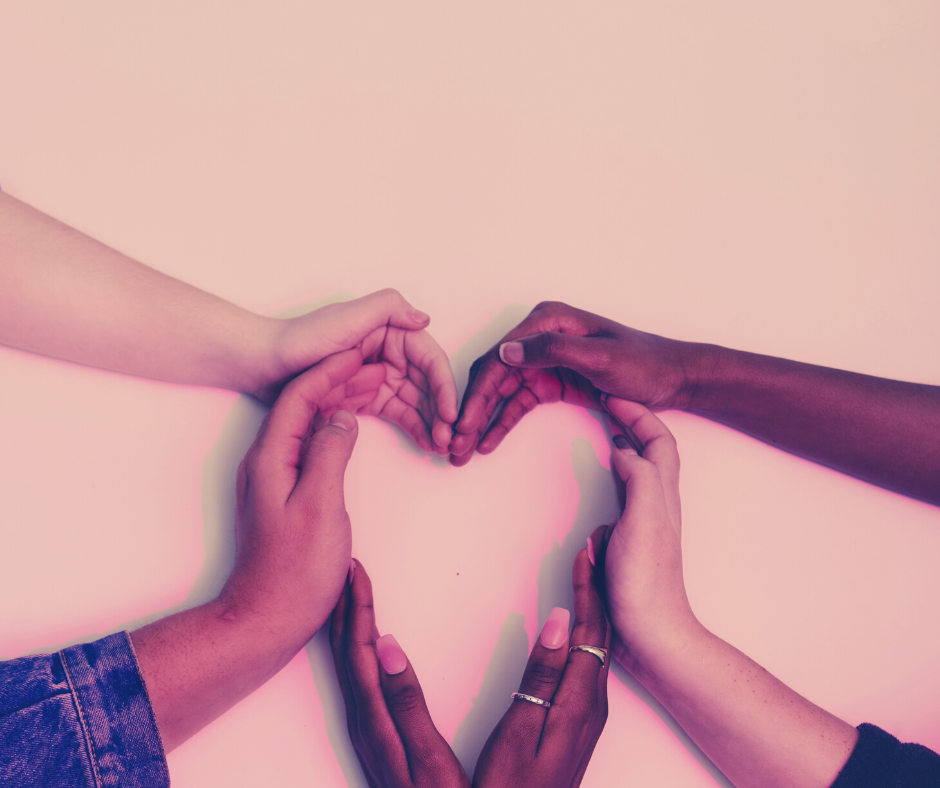The Power of Compassion Before Reaction
The human brain continues to fascinate me. The speed in which it makes judgements on what we see, hear, read and experience is astounding. Sometimes it feels like we don’t have control over our quick reactions. But in truth – we do. Our thoughts and reactions are always a choice. One of the most impactful choices I believe we can make is the choice to practice compassion.
“If you want others to be happy, practice compassion. If you want to be happy, practice compassion.” – Dalai Lama
Recognizing the Many Layers
You’ve probably heard the expression: “there are two sides to every story”. Simply put, this means that there are often two (or more) different versions of the same event. But actually, it is much more complex than that. Each side to every story – just like each individual person - actually has many, many layers. Yet, we tend to make judgements based only on what we can see. What is right in front of us typically is only the top layer - the surface. When our eyes see something and our ears hear something, the brain combines that input with our own thoughts, beliefs and experiences to make judgements and decisions (this is a complex topic in itself – we’ll have to save that for another blog!).
There is no shortage of examples I could use to paint the picture of this with the current events in our world right now - but I will attempt to provide a simple illustration:
On a recent errand-running day, my daughter and I were driving to our shopping area of choice. I had exited the highway onto a two-lane road. We ended up behind a car whose speed was well below the posted speed limit. It felt as if we were crawling. The first thoughts my brain offered me were along the lines of: “This person doesn’t know how to drive! This is so annoying. I just want to get to the store. What the heck is their problem?”. Do you see how those thoughts immediately labeled the driver as basically incompetent in my brain? And my mood quickly went downhill as I became annoyed and frustrated - which I’m sure was felt by my daughter. This all could have easily bled into our shopping and made the whole day miserable.
However – as quickly as my brain offered judgment, I intentionally made a switch and chose to practice compassion. I changed my thoughts from “this person doesn’t know how to drive” to “maybe they are a new driver, or maybe they are caught up in a great song and not realizing what their speed is! We aren’t in a hurry. Actually – it’s a really nice day for a drive!”. As corny as that may be – it changed everything. I have no idea what the driver’s situation was. But it didn’t matter. I chose to have compassion. Frustration melted away and all was well. As a side note - just think of how much road rage could be avoided if we all did this!
What is Compassion?
Let’s dig into the word compassion a bit. The Merriam-Webster dictionary classifies ‘compassion’ as a noun and defines it as the “sympathetic consciousness of others’ distress together with a desire to alleviate it.”
If I were to enhance this definition, I would make these changes: “sympathetic and/or empathetic consciousness or unconsciousness of others’ distress and their life situation together with a desire to understand it and/or alleviate it.”
My changes to the definition suggest that: 1) we don’t necessarily have to be fully aware (conscious) of the person’s situation in order to practice compassion; 2) the person doesn’t always have to be experiencing distress or suffering in order for us to practice compassion; and 3) we can also practice compassion without the need or ability to alleviate it - as empathizing, sympathizing and simply acknowledging without judgement is enough. That alone can be truly impactful.
I believe that compassion is also a verb. To truly practice compassion, there needs to be action. At a minimum, that action can simply be questioning your reactions and shifting your thoughts. This alone will typically guide what you might do, say or think next in a kinder and gentler direction.
The Power of Compassion
On the surface – it might not seem like there is much to it, but compassion holds great power. Here is what that looks like:
Compassion allows us to get curious. Curiosity is the foundation to awareness. True awareness is pixie dust that helps us make the most of our lives.
Compassion can soften our judgements. Like I mentioned, our brains like to react quickly – and those reactions come with judgements that are often uninformed and harsh. Dialing those judgements back can lead to a better outcome.
Compassion puts care and humanity in front. It enables us to move from judgment to acceptance and embrace everyone as equal humans.
Compassion allows us to momentarily put ourselves “in the shoes” of others. It creates a space to imagine what the other person might be experiencing – even if you don’t actually have the first-hand experience.
Compassion benefits all. Every person desires it and deserves it. It has a profound impact on those who receive it and also those who share it.
Compassion is not exclusive. Every situation and person is deserving of compassion. From the child who is acting out to the parent with a crying baby on an airplane. From the retail employee who is having a bad day to the teacher who wears a hundred hats. From the co-worker who is struggling with a task to the boss who is under extreme pressure. From your neighbor who lost their job to yourself who is just trying to the best you can.
Compassion doesn’t necessarily excuse, and it doesn’t necessarily change the mind. It doesn’t suggest that a person can’t have their own emotional reaction, but it can certainly soften the judgement. A person can both disagree with something AND have compassion – it doesn’t have to be either/or. Compassion will cultivate a reaction and response from a place of love vs. a place of anger, fear, or hate. It can produce a smile and stop someone from being rude. By its nature, compassion produces calmness. In its glory, it creates better treatment of each other.
And it might be exactly what you or another person needs today.
How to Practice Compassion
“Just as ripples spread out when a single pebble is dropped into water, the actions of individuals can have far-reaching effects.” – Dalai Lama
Just image a world where every person practiced compassion – whether internally, on social media or in the presence of others. We would have a kinder and more forgiving world. The good news is – every human has the ability to make a difference in their own lives – creating a ripple effect that may not be immediately visible.
It’s easy to put labels on people, to put them in ‘buckets’. Rather than allowing your brain to do that – you can train your brain to recognize that there are layers to be uncovered. Here are a few things to consider:
Start with yourself. We are often the hardest on ourselves. It is much more difficult to be compassionate toward others if we aren’t doing the same for ourselves.
Challenge your beliefs. It starts with awareness. Dig into who you are. Some questions you can ask yourself as a starting point are: “What is my personality style – what makes me unique?” “Why do I have the beliefs that I have?” “How have my experiences shaped who I am?” “What am I missing when I hold my beliefs and experiences as truth?”
Get curious. Go deeper than the surface. Ask meaningful questions of the other person. Ask yourself: “What might the person be going through that I can’t see?” Question your own assumptions.
Put the ego aside. Watch for thoughts like “If I were them, I would…” or “I have it worse because…”. To give compassion to another, you have to step aside for a moment.
Put yourself in the other person’s shoes. Remind yourself that we all have layers. Imagine what you might think or feel or how you might behave in their situation.
Just as compassion has a ripple effect, judgement does too. Remember this: how we think and how we react is a choice. We get to decide how we want to contribute to the human experience.
Choose compassion – as one single act can change a person’s life forever – including your own.
What does compassion mean to you? How have you experienced receiving compassion? Where do you have opportunities to practice more compassion? Drop a comment and share your experience. We learn best when we learn from each other!
Tools like Insights Discovery can help you to really understand others in a way that lends itself naturally to increased compassion. And working with a coach is a practically perfect way to uncover barriers and grow skillsets in connection!
My coaching and facilitation services are impactful and meaningful ways to create transformation. When you’re ready — I’m here to partner with you.
Additional Resources:
Relevant blogposts: The Power of Connection and The Power of Intention
Assess your own satisfaction: Satisfaction Snapshot
Start taking steps toward the results you want: Jump Start Your Change guide
Nice to Meet You!
My name is Angie Robinson. I am a coach, facilitator and consultant. I have a passion for partnering with others, helping them to be their best selves. I am known for having balanced judgment, making big picture connections, and building relationships.
FREE DOWNLOAD
10 Impactful Coaching Questions
FOR SELF + OTHERS
This download provides thought-provoking questions to create connection and focus when coaching others and yourself - ultimately leading to clarity and desired results!
When you sign up for this free guide, you'll also receive tips, insights, and updates sent straight to your inbox. You can opt-out any time.
SHARING IS CARING
Know someone who could benefit from this article?
Share it with them:






